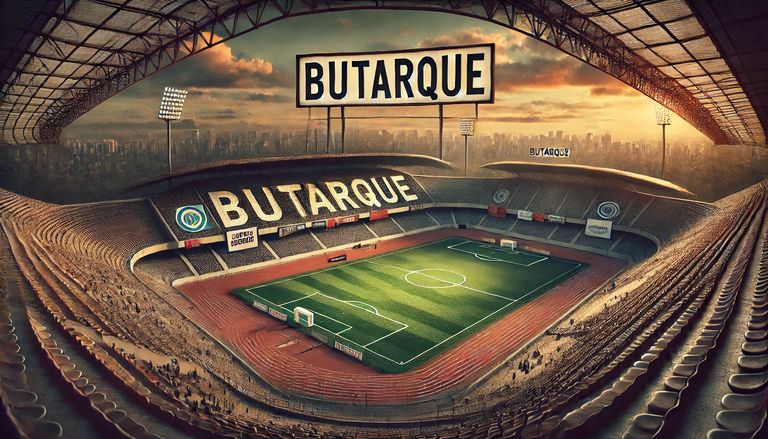The Semifinals:
FC Barcelona and Real Madrid will play against each other after both teams had beaten Atlético and Real Sociedad. Real Madrid won 3-2 with a VAR issue included. Two days before, FC Barcelona won 3-0 against Atlético with Claudia Pina scoring 2 goals and Hansen (who is actually coming from an injury) scored the third. Real Madrid have never won against Barça. I believe this situation will continue the same, especially in a final where the title is at stake.
The Prize for the winner has been raised to 27.500€
Women’s football is growing, even though its visibility in Spain is questionable. There’s a lack of institutional and financial support for women's football.
There are countries like England that after hosting the Women's Euro 2022 took advantage of it and their national league (Women’s Super League) experienced a major change.
Clubs are losing money to participate
Let’s use Barça as an example. FC Barcelona expenses are estimated to be around 63.000€. All included: players, staff, accommodation and transports.The RFEF agreed to cover part of the expenses but which ones or the total amount is still unknown 2 days before the final. Clubs that are more modest or don’t have Barça’s amount of income prefere not to compete.
The Stadium: Butarque. And no, it's not a joke
Butarque might be the least attractive venue possible. Close to the capital Madrid but not in Madrid. Half an hour or a full hour from the city centre. We’re talking about a final here. The capacity of this stadium is so small compared to what this “Clásico” deserves.
This is an image generated to show how the venue hosting this Semifinal should be.

In the last 4 years Barça sold out to big venues as Camp Nou, San Mamés, El Metropolitano, etc. How come the RFEF chose such a ridiculously small venue as this one? Aren’t they ambitious enough to host the Finals somewhere else? That’s why a potential move to Arabia blows my mind.
Next stop: Saudi Arabia?
The media filtered the reason for this move. The reason is that Saudi Arabia organizers conditioned the men's Supercup to bring the women’s Supercup as well in the same package.
In my opinion, moving to Saudi Arabia is not a good move. Women’s football in Spain has other needs that might sound basic but this is the reality. Better salaries for the players is the main point. But also, some shaming needs such as changing the artificial grass fields to natural grass and adjusting the facilities accordingly to professional football.
Cata Coll and Patri Guijarro, both players and one of the captains of Barça, criticized this option calling it “disrespectful to women’s football”.
VAR: it didn’t work
The VAR experienced issues during the first Semifinal. The game started and the VAR was not working until the 70th minute. So two penalties for Alexia Putellas were not reviewed. This situation would be impossible to imagine if it happened in a Semifinal game in a men’s competition.

Closing thoughts
The RFEF is disrespecting women’s football once more. The players, the fans, the clubs. Despite all women’s football achievements and winning the World Cup in Australia, having the best players of the world like Alexia Putella (with two Ballon d’Or) and Aitana Bonmatí (two Ballon d’Or), this institution is failing to find a major sponsor for the competition and take it to the next level that deserves.
Women’s football is not a side attraction of Man’s football but this is something the RFEF hasn’t understood yet.
(SPA)
Las Semifinales
El FC Barcelona y el Real Madrid jugarán el clásico para convertirse en campeonas de la Supercopa. En las semifinales, el Barça venció 3 a 0 a un Atlético de Madrid con muchas bajas. El Real Madrid venció 3-2 a una Real Sociedad a la que anularon un gol por falta previa sin revisar por el VAR.
El Real Madrid nunca ha ganado al Barça. Creo firmemente que esta situación no cambiará ya que el primer título de la temporada está en juego.
El Premio para las ganadoras ha aumentado a 27.500€
En 2024 el premio por ganar la Supercopa femenina era de 2500€ menos. La RFEF anunció cambios importantes para 2025 y aquí los tenemos. Una subida de 2.500€ por lo tanto el equipo ganador se embolsará 27.500€. ¿Cómo es posible? ¿Cómo se atreven?
El fútbol femenino está en crecimiento aunque la visibilidad de la Liga española está en entredicho.
Claramente existe una falta de apoyo tanto institucional como financiero.
Otros países como Inglaterra han sabido aprovechar muy bien el tirón de la Euro.
Después de esta competición europea, la Women's Super League (su liga nacional) experimentó un gran cambio. Con los clubes invirtiendo más que nunca.
Los Clubes pierden dinero por participar en la Supercopa.
Vamos a usar el ejemplo del Barça. El FC Barcelona tiene unos gastos aproximados de 63.000€ contando jugadoras, staff, transporte, hotel. En caso de ganar, las campeonas recibirán 27500€ lo que supone unas pérdidas enormes para los clubes más humildes. La RFEF ha anunciado que se hará cargo de algunos gastos pero todavía no se saben cuales.
El estadio no es una broma: es Butarque, otra vez
Butarque podría ser el campo menos atractivo para disputar unas semifinales y final de una competición. Cerca de Madrid pero no en el centro de la ciudad, el desplazamiento se hace tedioso.
Los fans se han quejado durante años que este estadio se queda pequeño y que el acceso es muy difícil. La RFEF ha repetido sede. Se ve que le gusta.
Esta imagen está generada para que se vea lo que debería ser el estadio en el que se juegue una final de Supercopa femenina.
Por cierto, no se ha sabido la sede hasta hace un mes, lo que hace imposible que los fans puedan organizarse para desplazarse.
En los últimos cuatro años el Barça ha hecho sold out en grandes estadios como el Camp Nou, San Mamés, el Metropolitano, etc. ¿Cómo puede ser que la RFEF haya elegido este estadio tan pequeño? ¿Acaso no son ambiciosos?
Este es uno de los motivos por el que la posibilidad de llevar la Supercopa a Arabia me hace explotar la cabeza.

¿Próxima parada? ¿Arabia Saudi?
En mi opinión, no creo que esta decisión se adapte a lo que necesita el fútbol femenino en España. Hay otras necesidades. Adaptar los campos de césped artificial a césped natural, adecuar las instalaciones, mejorar los salarios de las jugadoras, tener VAR, mejorar el arbitraje, etc.
Las jugadoras Cata Coll, portera titular del Barça, y Patri Guijarro se han pronunciado y han sido muy críticas con la organización.
VAR: no funcionó
El Var no funcionó durante los primeros 70 minutos del primer partido de la Semifinales entre el FC Barcelona y el Atlético de Madrid. Obviando así dos posibles penaltis a Alexia Putellas. En la segunda semifinal entre Real Madrid y Real Sociedad el Var se encargó de anular un gol a la Real Sociedad por una falta previa.
Que un partido de Semifinal empiece sin VAR en una competición masculina es algo que es inimaginable. En el fútbol femenino pasa y demasiado a menudo.

Reflexiones finales
La RFEF ha faltado al respeto al fútbol femenino una vez más. A las jugadoras, clubes y fans. Es de otro planeta que la selección que ganó el Mundial esté gestionada por unos incompetentes como la RFEF. Tienen a la mejor selección mundial, tienen a dos jugadoras que acumulan 4 balones de oro entre las dos y aún así la organización es incapaz de hacer un trabajo descendente. Parece ser que todavía ven el fútbol femenino como una categoría inferior al fútbol masculino.
Posted Using INLEO